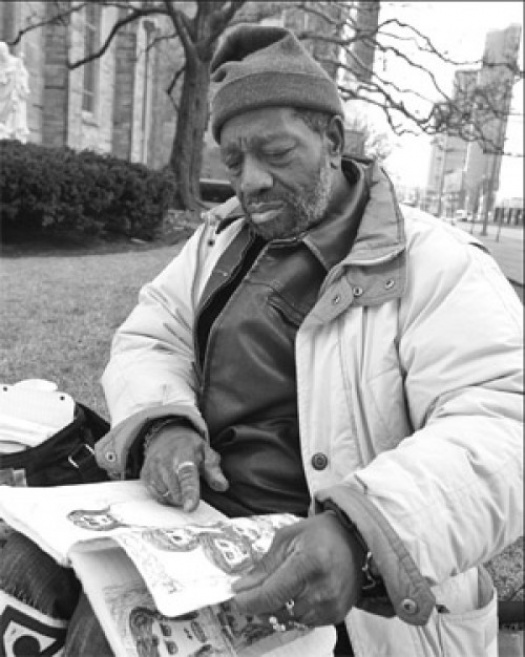
CLEVELAND û The nation’s foreclosure crisis has led to a painful irony for homeless people: On any given night they are outnumbered in some cities by vacant houses. Some street people are taking advantage of the opportunity by becoming squatters.
Foreclosed homes often have an advantage over boarded-up and dilapidated houses abandoned because of rundown conditions: Sometimes the heat, lights and water are still working. "That’s what you call convenient," said James Bertan, 41, an ex-convict and self-described "bando," or someone who lives in abandoned houses.
While no one keeps numbers of below-the-radar homeless finding shelter in properties left vacant by foreclosure, homeless advocates agree the locations – even with utilities cut off – would be inviting to some. There are risks for squatters, including fires from using candles and confrontations with drug dealers, prostitutes, copper thieves or police.
"Many homeless people see the foreclosure crisis as an opportunity to find low-cost housing (FREE!) with some privacy," Brian Davis, director of the Northeast Ohio Coalition for the Homeless, said in the summary of the latest census of homeless sleeping outside in downtown Cleveland.
The census had dropped from 40 to 17 people. Davis, a board member of the National Coalition for the Homeless, cited factors including the availability of shelter in foreclosed homes, aggressive sidewalk and street cleaning and the relocation of a homeless feeding site. He said there are an average 4,000 homeless in Cleveland on any given night. There are an estimated 15,000 single-family homes vacant due to foreclosure in Cleveland and suburban Cuyahoga County.
William Reed, 64, a homeless man who walks with a cane, thumbed through a shoulder bag holding a blue-bound Bible, notebooks with his pencil drawings and a plastic-wrapped piece of bread as he sat on a retainer wall in the cold outside St. John Cathedral in downtown Cleveland. He’s gone inside empty homes but thinks it’s too risky to spend the night.
Even the inviting idea of countless foreclosed empty homes didn’t overcome the possible risk of entering a crack house. "Their brains could be burned up," said Reed, who didn’t want to detail where he sleeps at night. In Texas, Larry James, president and chief executive officer of Central Dallas Ministries, said he wasn’t surprised that homeless might be taking advantage of vacant homes in residential neighborhoods beyond the reach of his downtown agency.
"There are some campgrounds and creek beds and such where people would be tempted to walk across the street or climb out of the creek bed and sneak into a vacant house," he said. Bertan, who doesn’t like shelters because of the rules, said he has been homeless or in prison for drugs and other charges for the past nine years.
He has noticed the increased availability of boarded-up homes amid the foreclosure crisis. He said a "fresh building" – recently foreclosed – offered the best prospects to squatters.
______ Copyright 2008 Chicago Defender. All rights reserved. This material may not be published, broadcast, rewritten, or redistributed.